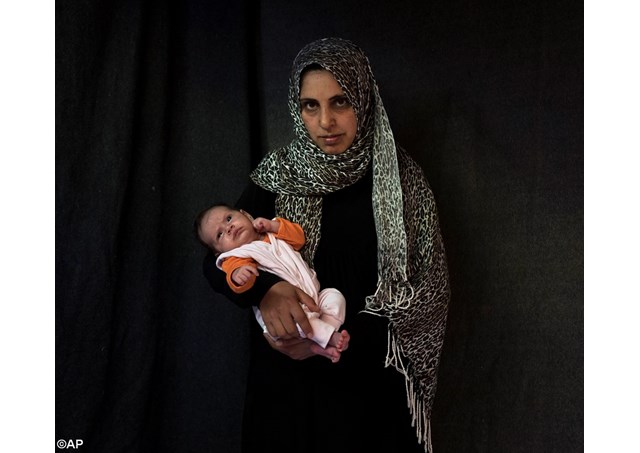
Saving One Million Babies

(Vatican Radio) Millions of newborns die every year of preventable causes. In 2015, 2.7 million newborns died within one month of their births and three-fourths of them within the first week of life. There were an equal amount of stillborn babies, leaving families with the grief of mourning a child. The U.S. Agency for International Development (USAID) has launched an initiative called ‘Saving One Million Babies’. Their objective is to work with interfaith networks to deliver high impact interventions, with a goal of saving the lives of a million newborn babies by 2020.
USAID has the knowledge and necessary interventions to prevent many of these deaths. By applying this knowledge to a global scale, including the low income nations where more than 90% of the deaths occur, they can increase the rate of newborn survival. Officials are present in Rome to attend the Justice and Peace Conference on Maternal and Child health and also the Rare and Neglected Tropical Diseases Conference, as well as to spread the word of their new initiative.
Ariel Pablos-Mendez, Assistant Administrator at the Bureau for Global Health in the U.S. Agency for International Development, spoke with Vatican Radio’s Linda Bordoni about the importance of working with interfaith networks in order to save then lives of newborns.
In 2012, then Secretary of State, Hillary Clinton, launched a call to action to end preventable child and maternal deaths. Pablos-Mendez emphasizes, “This happened not only because we are committed to the health of mothers and babies but because there has been an unprecedented success in saving their lives.”
In the 1960’s there were nearly 20 million deaths of children. By 1990, there were only 12.5 million deaths, despite the doubling of the population. Now there are less than 6 million deaths and this trajectory allowed the USAID to model the possibility of ending preventable child and maternal death.
A large portion of the deaths occur within the first minute, of life, the golden minute. The leading causes of death in the new born are prematurity, asphyxia and sepsis. There has been a realization that the progress in newborns has not been as successful as others, calling for a movement to focus on the newborn.
Pablos-Mendez says, “We have been doing a lot of things like working globally with partners, technical partners, the World Health Organizations, the American Academy of Pediatrics, and Ally to agree on world interventions that can save the lives of new borns.”
Today in particular, they are working on the clinical settings to train nurses and health workers on resuscitation and along with many other interventions that can save the lives of new borns. Simple things like washing your hands, breast feeding, and kangaroo care, which is bringing a preemie baby skin to skin with the mom, are very powerful interventions.
USAID does clinical trials on these methods, which show that mortality can be cut by half by these simple interventions. It is estimated that in four to five years one million babies’ lives can be saved around the globe.
“We are coming to Rome to invite the Vatican to be a co-convener of an effort in the interfaith community to bring the moral authority of the religious leaders in the pulpit, in the classroom, in the communities, to galvanize social behavior change,” outlines Pablos-Mendez. He continues, “Pope Francis has been very committed to the poor and very committed to families.”
Next year, Italy will be hosting the G7 summit, where health will be one of the priority areas. Ambassador Zappia, an advisor to Prime Minister Renzi, will convey a declaration for elevating maternal and child health in the G7 agenda. This will include support for a new global financing facility for women and children, which will be the equivalent to the global fund from last decade for Aids, Tuberculosis, and Malaria. It will be dedicated to saving the lives of mothers and babies and involves financing from world banks so countries can be more involved.
USAID aims to deliver mass drug administration that does not require doctors or even nurses but can be provided in communities. They have reached and treated over one billion people, which has been possible due to partnerships with the United States Government, the Great Britain Government, the Bill and Melinda Gates Foundation and many other NGO’s and philanthropic efforts. Additionally, the pharmaceutical industry has made a historical donation of over 12 billion dollars.
Delivering this type of aid is very much a merciful act and should be thought of in the context of the year of mercy. Pablos-Mendez agrees that this is a fitting end to the year of mercy:
“The support for these causes has been enjoyed by bi-partisan support; both the Republicans and the Democrats in Congress, the NGO’s and the faith-based organizations. Mercy is a good word and we have been using compassion as well. I think that for many in Congress, helping to save the life of poor kids in Africa, there is no political negotiation. It is pure compassion and it is the right thing, and even more so in the church.”
| All the contents on this site are copyrighted ©. |


